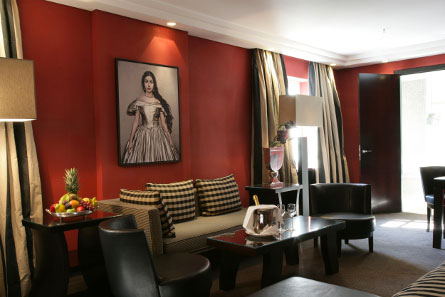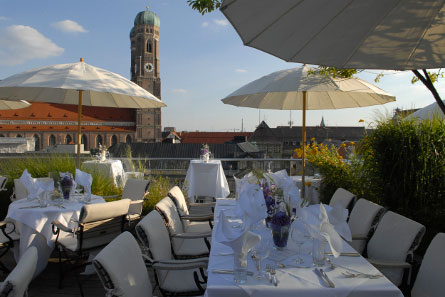La Fille du régiment♪, G. Donizetti, the 25.
The Magic Flute♪, W. A. Mozart, the 27.
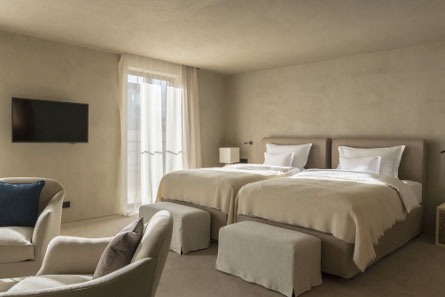
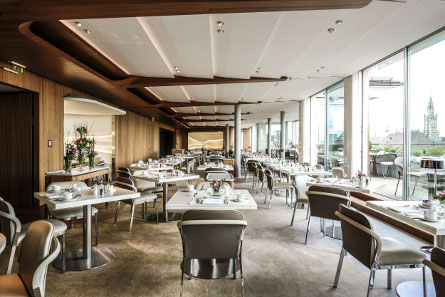
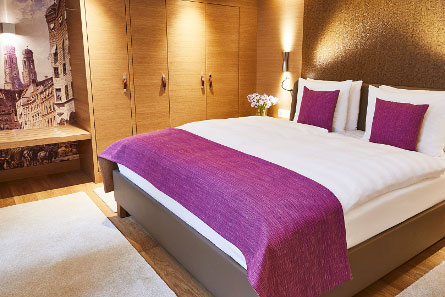
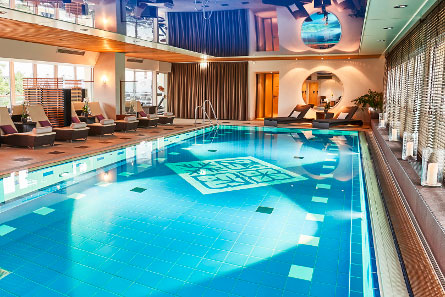
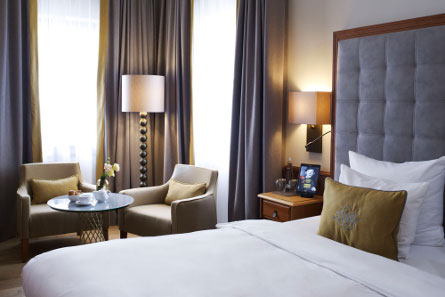
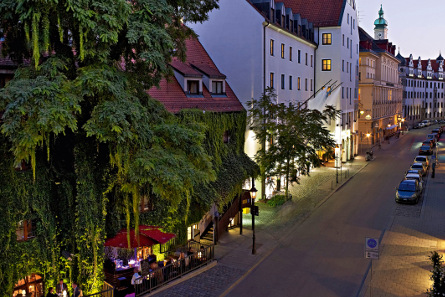

from Tuesday 24 to Saturday 28 December 2024,
4 nights
Arrangement 11, Christmas
Arrangement 11, Christmas
La Fille du régiment
G. Donizetti
G. Donizetti
The Tyrol, 1815. Young Marie was raised as a foundling by a French regiment and now travels with them as a sutler. She loves Tonio, a Tyrolean lad, who, however, is not an acceptable match according to the regiment as a supposed spy. When the local Marquise von Berkenfield accidentally learns from the regimental commander Sulpice that Marie is her niece who was thought to be lost, she immediately takes Marie under her wing to ensure that she is married in a decent manner. But even a year later, Marie still prefers to sing regimental songs and loves Tonio. In the meantime, Tonio has risen to the rank of a handsome officer and still wants Marie: Marie. His audition with the Marquise, however, is in vain.
When Tonio learns that Marie cannot be the Marquise’s niece, he confronts her. The Marquise must admit to Sulpice that Marie is her illegitimate daughter. The regiment prevents a wedding befitting her rank, Marie’s past is revealed, and with the Marquise’s consent, Marie is allowed to marry her beloved Tonio.
Gaetano Donizetti’s (1797-1848) Opéra Comique from 1840 is folksy, romantic, dance-like and melodic. The subject of the honest peasant or soldier versus the morally degenerate aristocracy, which was quite simple but widespread in the first half of the 19th century, brought great success to the work premiered in Paris and belonged to the standard repertoire for a long time.
With Tonio’s aria "Ah! mes amis, quel jour de fête!" with no less than nine challenging high cs, every tenor climbs the Mount Everest of his subject, so to speak.
When Tonio learns that Marie cannot be the Marquise’s niece, he confronts her. The Marquise must admit to Sulpice that Marie is her illegitimate daughter. The regiment prevents a wedding befitting her rank, Marie’s past is revealed, and with the Marquise’s consent, Marie is allowed to marry her beloved Tonio.
Gaetano Donizetti’s (1797-1848) Opéra Comique from 1840 is folksy, romantic, dance-like and melodic. The subject of the honest peasant or soldier versus the morally degenerate aristocracy, which was quite simple but widespread in the first half of the 19th century, brought great success to the work premiered in Paris and belonged to the standard repertoire for a long time.
With Tonio’s aria "Ah! mes amis, quel jour de fête!" with no less than nine challenging high cs, every tenor climbs the Mount Everest of his subject, so to speak.
Stefano Montanari - Damiano Michieletto
Pretty Yende, Susan Graham, Xabier Anduaga, Misha Kiria
Staatsoper
Romeo and Juliet, S. Prokofiev, the 26.
David Garforth - John Cranko
Staatsoper
The Magic Flute
W. A. Mozart
W. A. Mozart
W. A. Mozart (1756-1791) created a piece of music history with this unique stage work, which since its premiere in September 1791 has become one of the most popular and most performed operas worldwide.
When the theater and bon vivant Emanuel Schickaneder approached the financially and psychologically troubled composer in 1790 and presented him with a fairy-tale libretto, Mozart was immediately taken with it and added the masonic ideals and rites that were fashionable at the time. These gave the “Magic Flute” a completely different meaning and transformed the piece from a colorful magic pose into an almost testamentary appeal to humanity - entirely in the style of the spirit of the Viennese Classicism. Musically, this great German opera or Singspiel unites different styles such as opera seria, opera buffa and tragédie lyrique. Mozart’s genius united the French romance, the Italian aria and the German Lied to a fascinating kaleidoscope that inspires young and old alike. Popular arias from the "Magic Flute" such as “The Birdcatcher I am”, “Hell’s Revenge is boiling in my Heart”, or “This Portrait is Enchantingly Beautiful” are easily accessible to everyone. Goethe attested that this music alone would have provided a worthy accompaniment to his Faust.
When the theater and bon vivant Emanuel Schickaneder approached the financially and psychologically troubled composer in 1790 and presented him with a fairy-tale libretto, Mozart was immediately taken with it and added the masonic ideals and rites that were fashionable at the time. These gave the “Magic Flute” a completely different meaning and transformed the piece from a colorful magic pose into an almost testamentary appeal to humanity - entirely in the style of the spirit of the Viennese Classicism. Musically, this great German opera or Singspiel unites different styles such as opera seria, opera buffa and tragédie lyrique. Mozart’s genius united the French romance, the Italian aria and the German Lied to a fascinating kaleidoscope that inspires young and old alike. Popular arias from the "Magic Flute" such as “The Birdcatcher I am”, “Hell’s Revenge is boiling in my Heart”, or “This Portrait is Enchantingly Beautiful” are easily accessible to everyone. Goethe attested that this music alone would have provided a worthy accompaniment to his Faust.
Nikolaj Szeps-Znaider - August Everding
Ying Fang, Jessica Pratt, Seonwoo Lee, Giovanni Sala, Tareq Nazmi, Konstantin Krimmel
Staatsoper
Hotel informations for Munich 11


Bayerischer Hof *****
The traditional Hotel Bayerischer Hof ***** has been welcoming guests from all over the world to Promenadeplatz since 1841. The rooms are furnished in different styles: classic or contemporary, colonial or floral-romantic - we are happy to fulfil your wishes. The Blue Spa on the 7th floor provides relaxation above the rooftops of Munich and offers a wonderful view of the Frauenkirche with its bar & lounge and conservatory. Thanks to its very central location, the State Opera House is just a few minutes’ walk from the hotel.


Vier Jahreszeiten Kempinski *****
The Vier Jahreszeiten hotel ***** is, since 1858, an establishment of long tradition. It is located in the city centre on the Maximilianstrasse and only two minutes away on foot from the Opera. Offering 303 rooms and 62 luxurious suites, there are also numerous facilities to take advantage of. Its restaurant, Schwarzreiter, enjoys an excellent reputation and it is particularly appreciated after an evening at the Opera.


Platzl Hotel ****
The Platzl hotel **** welcomes you in a charming atmosphere in the heart of Munich, only a few minutes away from the Opera. Its 167 rooms are comfortably equipped and tastefully decorated. The hotel also offers a restaurant of typical Munich ambience in a vaulted room as well as a health spa with sauna and Turkish bath.
All-inclusive price per person for Munich 11
Single room/ night
Bayerischer Hof
2.720,- Euro
140-250,- Euro
Vier Jahreszeiten Kempinski
2.370,- Euro
130-240,- Euro
Platzl Hotel
1.680,- Euro
90-200,- Euro

The price includes
Overnights including breakfast, good opera tickets, travel cancellation expenses insurance.






